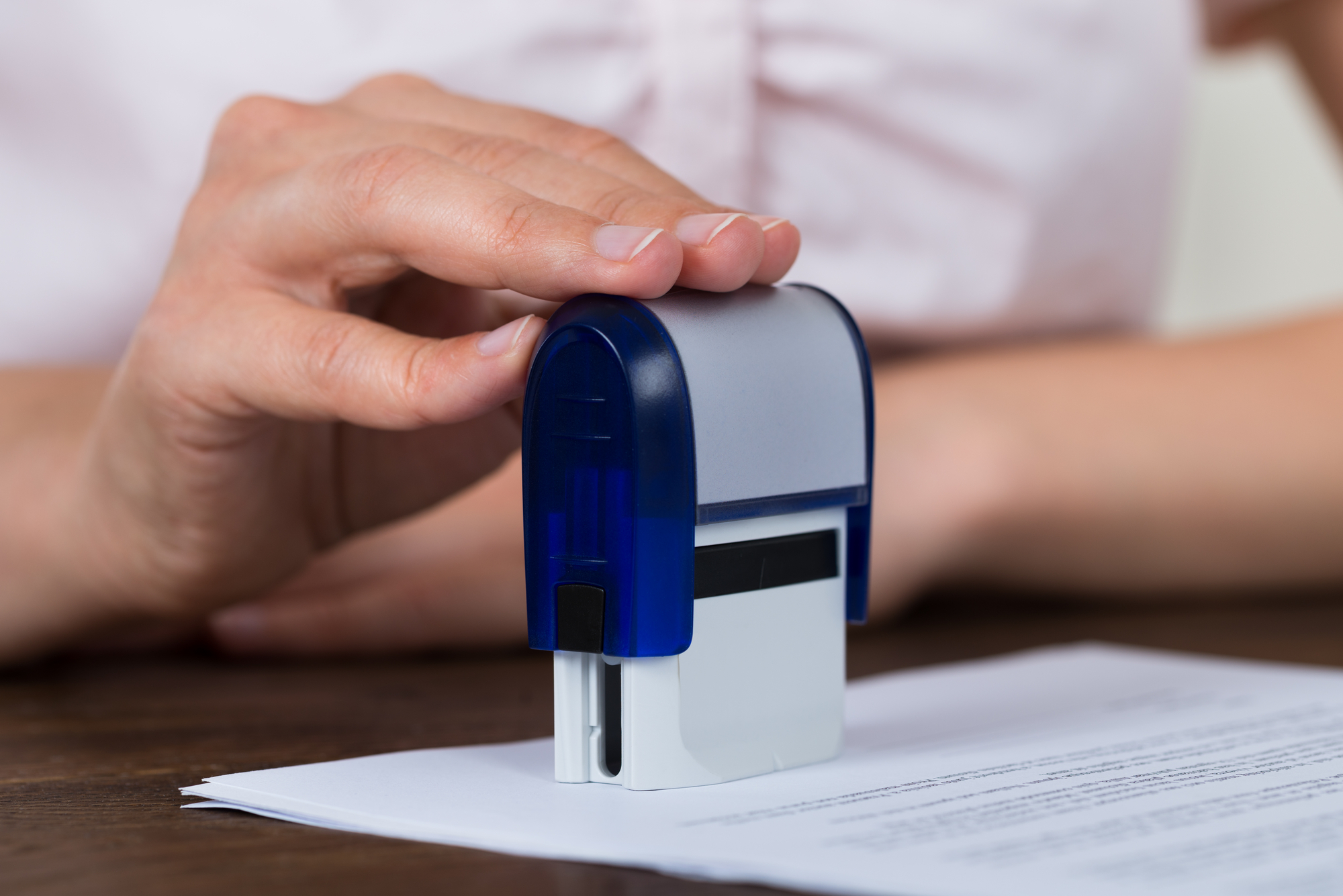
When you’re drafting or updating important estate paperwork, you want to make sure that your documents will be upheld in court. One way to accomplish this is to have them notarized. Some estate documents require notarization at the time of signing, while others do not. We’re explaining what exactly a notary public does and which estate documents you’ll want to get notarized.
The Role of a Notary Public
A notary public is an officer who serves the community. The law grants notaries very specific roles and abilities, which are primarily to witness documents, administer oaths, and perform other administrative functions.
Each notary public must go through an application and approval process. In Georgia, to become a notary, you must: 1) be 18-years or older, 2) be a US citizen or legal resident, 3) legally reside in the county where you’re applying to be a notary, 4) have a functional telephone number, and 5) be able to read and write English.
Once a notary public successfully completes the application process, they have the legal authority to:
- Administer oaths and affirmations
- Make certified copies of original documents that are not public record
- Take acknowledgments
- Take verifications upon oath or affirmation
- Witness affidavits upon oath of affirmation
- Witness or attest to signatures on written documents
In other words, they have the authority to verify the identities of signers, monitor the signing of a document, administer oaths, swear that the contents of a document are true, and allow for the reproduction of original documents.
Notary Requirements
In order for a notary to perform their notarial act, they are tasked with verifying the identity of the signer and making sure that the documents are completed. In order to do this, the notary will request that the signer show proof of identification (ex: driver’s license, passport). The notary will also ask that the signer(s) complete the form in-person and in front of them. Typically, the notary will have the signer complete the forms in blue ink – this helps distinguish between an original copy and a photocopy. Once everything is completed, the notary will also sign and stamp the document. (The stamps, which are issued as part of the notary application process, can either be an ink stamp or a perforation stamp).
A notary public will not administer an oath or notarize a document if they feel the transaction is illegal or fraudulent. They will also make sure that the signer is not being coerced and that they understand the consequences of the transaction.
Notarizing Estate Planning Documents
To notarize a document means that it was properly executed and should be legally enforceable in court. Not every estate document requires notarization, but it can be a smart, proactive decision – especially if you’re concerned that other parties may not follow through with your wishes. Some of the documents that do need to be notarized include:
- Custody and Guardianship Agreements
- Executorships
- Power of Attorney
- Probate Court Petitions
- Trusts
- Wills
Georgia’s Temporary Law on Remote Notarization and Witnessing
In April 2020, at the onset of the COVID-19 pandemic, Georgia Governor Brian Kemp signed the Executive Order Permitting Remote Notarization and Witnessing. The temporary measure provided Georgia residents a safe and secure means of completing their estate planning documents. The order encourages social distancing while also providing that notarization and witnessing can be performed remotely (using real-time audio-visual technology).
This temporary order will stay in place until the termination or non-renewal of Georgia’s Public Health State of Emergency.
Have Additional Questions? Contact Brian M. Douglas & Associates
Completing your estate documents takes time and energy. After all that work, you want to make sure your documents will stand in court. A notary public is an important part of that process. If you have questions about notarizing your estate documents, or if you’d like to schedule an estate planning consultation, please reach out to us at (770) 933-9009 or via our online contact page.

